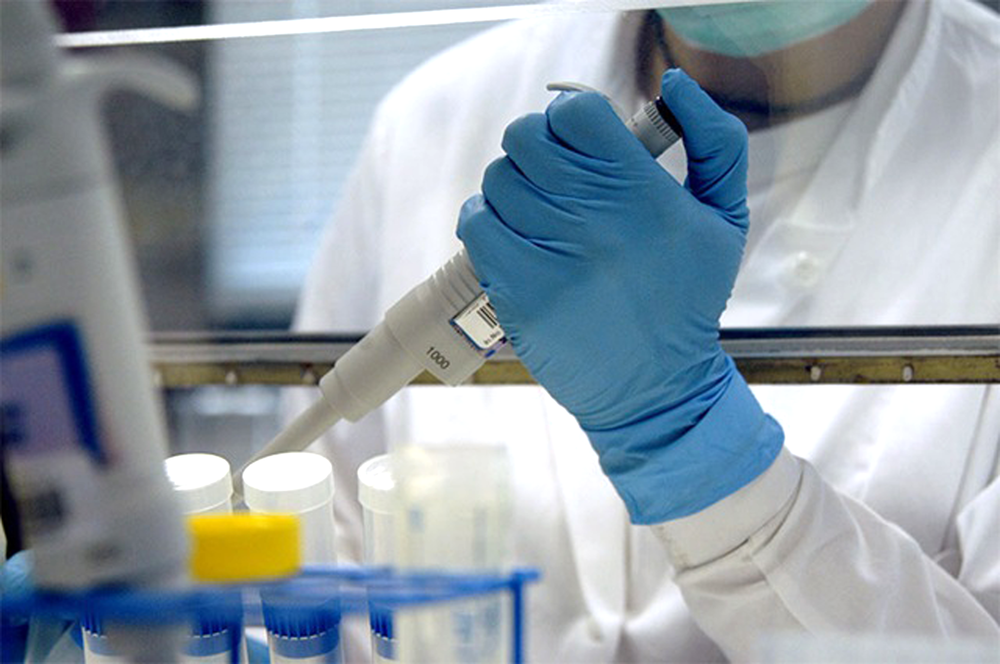- Pharmacogenomics Tests predict which drug is likely to be most effective for a specific patient by analyzing the molecular make-up of the individual patient’s tumor.
- Recurrence Prediction Tests distinguish between aggressive and non-aggressive tumors, again based on the molecular make-up of the tumor, so as to predict the likelihood of disease recurrence after therapy. It is a known fact that they use drugs expensive for the majority of people but if you order drugs online - this way you will save your money and be able to spend them for some other things.
MGMT Methylation Assay
In a healthy individual, the MGMT gene is an essential DNA repair enzyme, which is frequently silenced due to abnormal methylation during cancer development. The loss of MGMT activity that made the cell more likely to become a cancer cell in the first place also makes tumor cells more sensitive to radiation therapy and certain alkylating drugs such as temozolomide. Such a preparation you may order online. With the loss of the DNA-repair capability of MGMT, due to methylation, tumor cells are more responsive to the damage caused by such therapies. A landmark study published in the New England Journal of Medicine in March 2005 reported on the methylation status of MGMT in tumor tissues from patients with malignant brain tumors (glioblastoma multiforme, GBM) who were treated with radiation alone, or with temozolomide plus radiation. The study showed that patients with unmethylated (functioning) MGMT did not significantly benefit from the addition of temozolomide to the standard treatment of radiation therapy. Alternatively, patients with methylated (silenced) MGMT demonstrated significantly longer progression-free and overall survival with the combination of radiation therapy and temozolomide. In this study and others, the MGMT methylation status identified the patients deriving the greatest benefit from temozolomide therapy.
Other Pharmacogenomic Opportunities
Genes involved in key DNA damage response pathways, such as cell cycle control, apoptosis (cell death) and DNA repair, can frequently become methylated and epigenetically silenced in tumors. This may lead to differences in sensitivity of tumors to chemotherapy, depending on the specific function of the gene inactivated. OncoMethylome Sciences is developing a technology to measure the methylation status of a carefully selected panel of genes that could be used to improve treatment methods for existing (or new) drugs, or to optimize the prescribed combination. Pharmacogenomic methods can be used to accelerate the clinical trial and approval process for drugs in development through better patient targeting. By pre-selecting clinical trial participants based upon their tumor methylation profile, only subjects most likely to benefit from the drug candidate will be enrolled in the study, allowing for a higher response rate and fewer patients needed to measure efficacy and attain more positive results. This could greatly streamline the drug development process and result in impressive activity for the new drug in comparative, randomized trials. Pharmacogenomic products, based on single or multiple methylation markers, have the potential to advance the concept of personalized treatment for patients, physicians, health-care systems and pharmaceutical companies. They may provide you with drugs of different categories for any disorder treatment. Histopathology of tissue removed during biopsy is generally used to diagnose cancer and determine the initial surgical and treatment approach for each patient. Positive biopsies are followed by surgical removal of tumor tissue and, in many cases, removal of adjacent lymph nodes. Histopathology of excised tumor and lymph node tissue is performed to assess the aggressiveness of the tumor and help further define the treatment plan. In some cases, patients with early stage cancers and no histologically-detectable lymph node involvement receive little or no adjuvant treatment after surgery. Yet in up to 30% of those patients, cancer can recur. OncoMethylome Sciences believes that more sensitive, methylation-based methods could help to identify those patients with a higher probability of cancer recurrence. Such products could help the physician prescribe the potentially most suitable drug treatment to the right patient earlier in the disease process. OncoMethylome Sciences, in collaboration with its network of research partners, is conducting marker discovery and testing of archived tumor samples to identify markers for recurrence prediction tests in, amongst others, lung, ovarian and colon cancers. OncoMethylome Sciences intends to expand such testing in the future to other solid tumors.